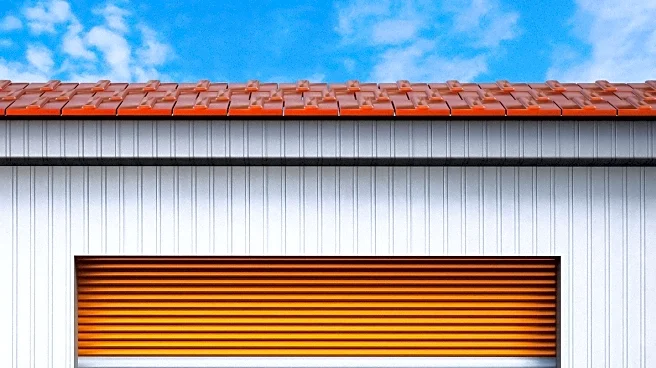What's Happening?
The rising costs of self-storage units are prompting homeowners to explore alternative storage solutions. In central New Hampshire, the proliferation of storage facilities highlights a growing demand for off-site storage, with prices reaching as high as $90
per month for a small 5-foot by 5-foot unit. Homeowners are increasingly considering building their own storage sheds or utilizing existing garage space to avoid these fees. Tim Carter, a builder, shared his experience of constructing a 16-foot by 24-foot shed, which saved him over $50,000 in storage fees over the years. He suggests that homeowners can either build their own sheds or purchase pre-built ones, while also considering lofts in garages with high ceilings as a viable option.
Why It's Important?
The trend towards finding cost-effective storage solutions is significant as it reflects broader economic pressures on households. With self-storage costs rising, homeowners are incentivized to invest in permanent storage solutions that can offer long-term savings. This shift not only impacts the self-storage industry but also encourages a culture of decluttering and efficient use of space. By opting for home-based storage solutions, individuals can reduce monthly expenses and potentially increase property value. The movement towards self-sufficiency in storage also aligns with minimalist living trends, emphasizing the importance of managing possessions and reducing reliance on external services.
What's Next?
Homeowners considering building or purchasing storage sheds must navigate local zoning laws and ensure proper installation to withstand environmental conditions. As more individuals seek to reduce storage costs, the demand for DIY shed plans and pre-built options may increase. Additionally, the self-storage industry might respond by offering more competitive pricing or enhanced services to retain customers. The trend could also lead to innovations in home storage solutions, such as modular systems or space-saving designs tailored to individual needs.
Beyond the Headlines
The shift towards home-based storage solutions may have cultural implications, promoting a lifestyle that values simplicity and self-reliance. As people become more conscious of their consumption habits, the emphasis on decluttering and efficient space use could foster a broader societal movement towards sustainability. This change might also influence real estate trends, with properties offering ample storage space becoming more desirable. Furthermore, the DIY approach to storage solutions could empower individuals to develop new skills and engage in community sharing initiatives, such as free rooms in recycling centers.

















